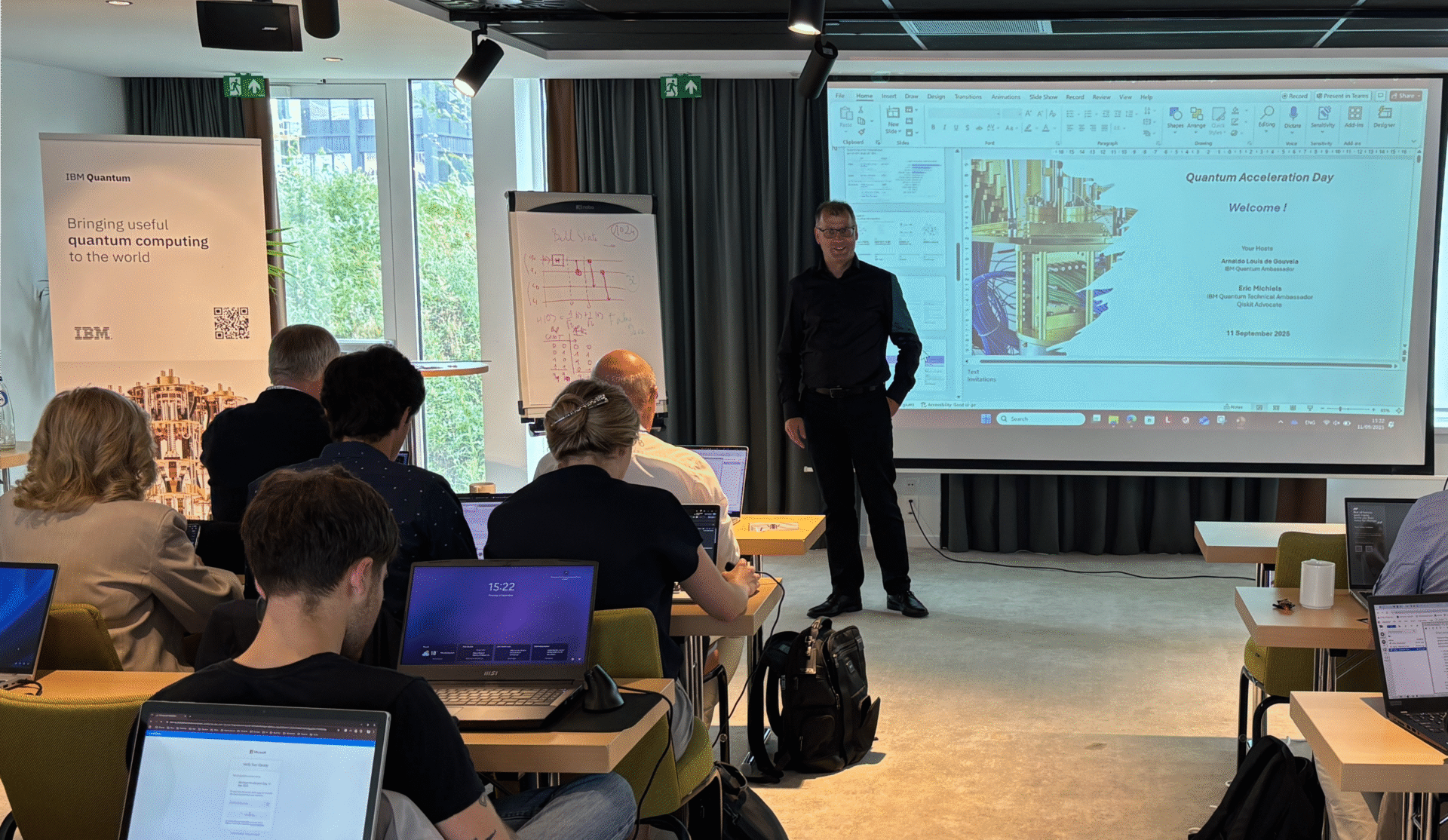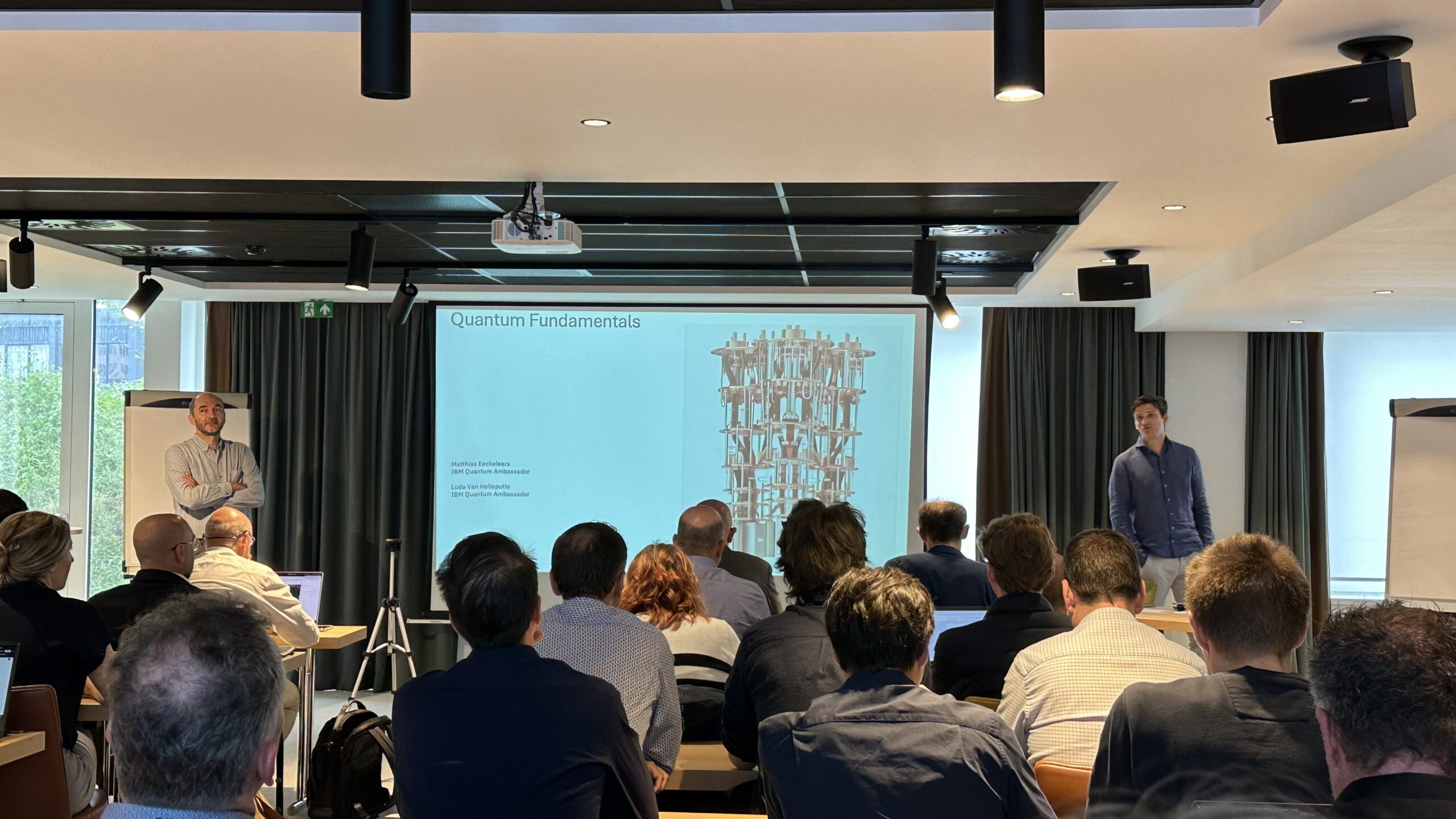On Thursday the 11th of September, we attended an IBM hosted event, which showcased the current state of quantum computing and the impacts it will have on the security landscape. Based on what we’ve seen in the past, quantum has demonstrated the potential to alter the way companies work in the coming years and this event seems to confirm that it will. Quantum computing can sometimes be considered similar to the fusion reactor, we’re always just a few years away, at all times.
However, IBM has committed to provide the first quantum advantage to its partners by 2026. This means either completion of tasks which are currently impossible or provide significant performance increases over classical processes. And only shortly after, by 2029, they aim to have a large-scale, fault-tolerant system available for quantum workloads.

The physics of quantum computing and Use Cases
The event started with an excellent primer on some of the physics of quantum computing and some of the underlying mathematics. While this will all be abstracted away at some point, similar to how we rarely get confronted anymore with CPU microarchitecture anymore these days, at this point in the quantum lifecycle, it certainly helps. The main draw of the event came after, with a focus on use cases and a speaker from a Belgian financial institution. It has always been plain to see that when it comes to material sciences and the modelling of nature and chemistry, classical compute would never be able to handle it. The benefit of quantum in these domains is therefore a given, but they also provided an insight in how other industries could use it for better, faster and more accurate simulations, which could in turn provide an edge over the competition by being able to react more quickly to change. Due to the technology being new and complex by nature, even for companies who have started looking at quantum, it was confirmed by the speaker to be a real challenge. Not just to come to grasps with a technology that works quite different from what we have available today, but also the translation from a classical problem into quantum algorithms. Regardless, they do see the significance of the technology and more resources are being invested to explore the possibilities, rather than less. IBM expects companies who are exploring the options now, to be the biggest beneficiaries when quantum inevitably becomes a factor. Governments are also looking in this direction, but that also leads into the second main part of quantum computing, it’s impacts on security.

Post Quantum Cryptography
Our current algorithms used for encryption are based on prime number factorisation, something that classical computers can’t easily reverse. For quantum computers however, using the Shor and Grover algorithms, this becomes trivial. It is a known factor that encrypted data is currently being harvested by various actors, to potentially be decrypted at a later date, but it was always thought that by the time that occurred any possible relevance for that data would be gone. During the event, it was made very clear that this expectation is no longer tenable. We can be sure that any data encrypted with current algorithms will no longer be safe once quantum becomes more widely available, which, as mentioned previously, is something IBM will probably achieve before the end of this decade. Currently IBM is still very much ahead of the others and they, quite responsibly, limit the use of the Shor and Grover algorithms. But as aways with technology, it is only a matter of time before it proliferates and those restrictions relax and Shor and Grover become widely available. This is why another focus of the event was explaining why a transition to quantum safe algorithms is very important and this process can be started today. The algorithms themselves do not require any quantum input, but they do guarantee your data being safe when quantum reaches general availability. This did serve as a bit of a wake-up call, because for many companies, a project to completely change security will take a good while and if you want your data to remain unreadable for a decade or more, it might even be too late. Even more worrying can be that while some companies have their eye on this, many more are quite oblivious to the potential dangers of their encrypted data no longer being secure in the near future.
Hands-on workshops
Finally, we also were able to go hands-on with Qiskit, the software component in the current quantum ecosphere, and do a couple of demos. Currently, it is still rather abstract, but there is already a large amount of default algorithms available, more coming and they are open to the community. Qiskit is also the highest rated platform at the moment to interact with quantum computers and comes with a small, but fun detail. Even when running in simulation mode, which as the name implies, simulates quantum algorithms on classical architecture, there are performance increases over current implementations, simply by applying the principles. Suffice to say, this only works for a limited number of qubits, but it serves as a great proof of concept, nonetheless.
In the end, there is still a long way to go, both when it comes to the actual technology, and the awareness of companies. But as IBM manages to hit their milestones each year, it is increasingly difficult to argue that quantum will never happen. While initial events might have been high level and mainly built on hype, this event was a very tangible showcase of where we are and how close quantum computing is.

IBM Integration Specialists
Enabling Digital Transformations.
Let's get in touch...
 Find us here
Find us here
Belgium
Veldkant 33B
2550 Kontich
Netherlands
Utrecht
Van Deventerlaan 31-51
3528 AG Utrecht
![]() © 2019 Integration Designers - Privacy policy - Part of Cronos Group & CBX
© 2019 Integration Designers - Privacy policy - Part of Cronos Group & CBX